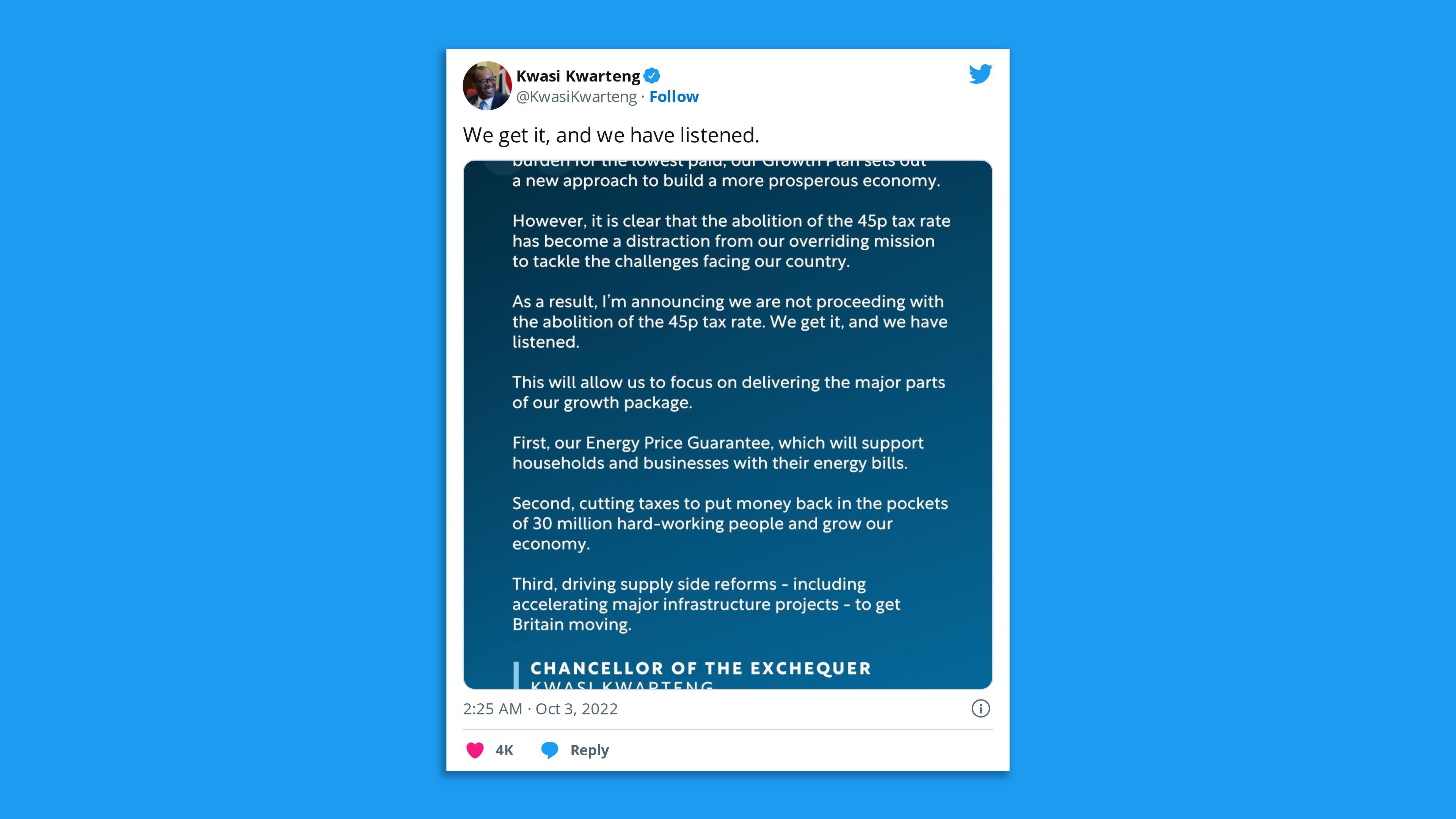The British government has abandoned plans to cut taxes for the highest earners 10 days after Prime Minister Liz Truss announced the move, Chancellor Kwasi Kwarteng confirmed Monday.
Why it matters: The plans designed to stimulate growth sparked a growing rebellion among Members of Parliament in Truss' ruling Conservative Party, and global financial markets responded by treating the U.K. as if it were an emerging market.
What they're saying: "We get it, and we have listened," Kwarteng said in a statement announcing the reversal, calling the outrage at the plans for high income earners "a distraction from our overriding mission to tackle the challenges facing our country."
The big picture: The pound plunged to a record low against the dollar following Kwarteng's Sept. 23 announcement that the government would abolish the 45% rate of income tax for those earning more than 150,000 pounds (about $164,000) a year.
- The proposal triggered an emergency intervention from Britain's central bank and a warning from the IMF that's usually reserved for debt-laden developing countries.
Of note: Among the Conservative MPs who indicated they would vote against Truss' "mini-budget" plans was the influential former cabinet minister Michael Gove, who told the BBC Sunday that "using borrowed money to fund tax cuts" was "not Conservative."
By the numbers: A YouGov poll published Sept. 30 found the opposition Labour Party has a 33% lead over the Conservatives — up from 14% when Truss became prime minister last month after Conservative Party members elected her leader.

Go deeper: U.K. tax cut proposals reverberate across markets
Editor's note: This article has been updated with new details throughout.







